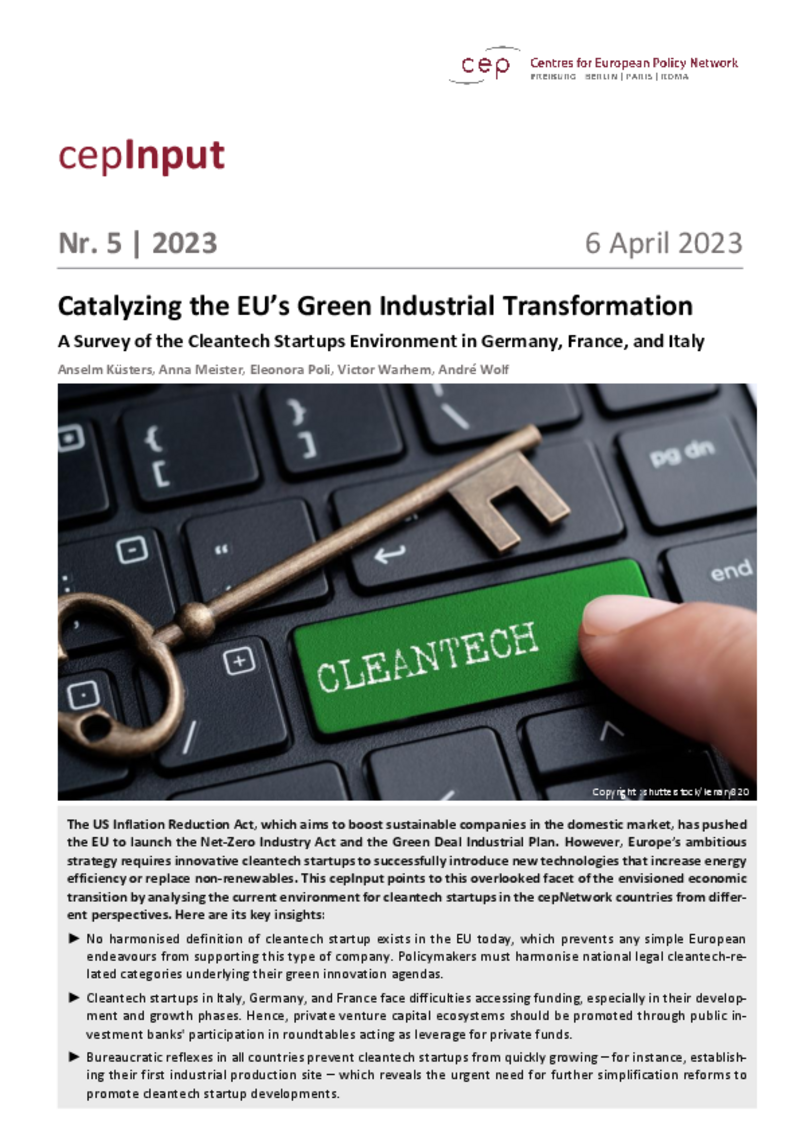
Climate
Catalyzing the EU’s Green Industrial Transformation (cepInput)
cepInput
"In all three Member States studied, sufficient venture capital is lacking. In addition, governments are unwilling to reduce bureaucratic hurdles to accelerate start-ups," says cep expert Eleonora Poli, who analysed the respective start-up scenes with cep economists André Wolf, Anselm Küsters, Anna Meister and Victor Warhem.
The empirical basis is the evaluation of 61 German, 30 French and 14 Italian start-ups and their regulatory framework conditions. According to the study, most companies focus on alternative energy sources such as solar energy, clean agriculture, smart-home and smart-city technologies or the restructuring of the healthcare system. It is striking that most start-ups are located in only a few metropolitan areas, such as Berlin, Munich, Hamburg, Paris and Milan.
"In the EU, there is no uniform definition of cleantech start-ups so far," says Wolf. According to Küsters, policymakers must harmonise national legal cleantech categories. Warhem criticises bureaucratic hurdles for cleantech start-ups in all three countries. While the scene in Germany is characterised by mostly very young companies, the companies in France and Italy are comparatively older.
Download PDF
| Catalyzing the EU’s Green Industrial Transformation (cepInput) (publ. 04.06.2023) | 1 MB | Download | |
 | |||





